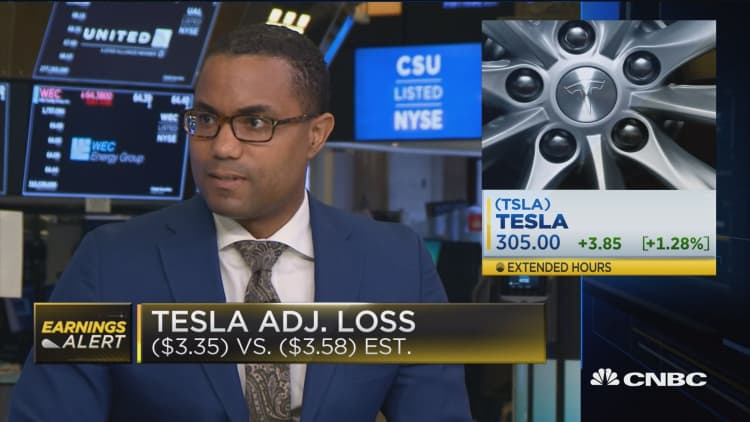Tesla CEO Elon Musk has no intention of raising more capital, even though some on Wall Street think he should.
Asked on Wednesday if he might consider now a good time to raise more money, Musk simply said "no."
"I specifically don't want to," he said on a conference call after Tesla posted first-quarter earnings that beat expectations.
Tesla finished the quarter with about $2.7 billion in cash, down from a balance of $3.4 billion at the end of last year. But it is hard to see how it will not have to raise capital by some time early next year in order to keep funding its ambitions and providing itself a financial cushion.

The electric car maker also plans to reduce capital spending for the rest of the year by about $400 million, which should mitigate capital needs, CFRA analyst Efraim Levy said in a note Wednesday. But Levy still expects Tesla will need to raise money again by the end of the first quarter of 2019, around the time the last tranche of Tesla's debt is due.
"Also," he said, "we wonder what spending is deferred and for how long?"
Tesla has returned to the market several times for cash since its public offering in 2010, and investors have had concerns about the company's ability to pay its debt, as well as the dilutive effect of issuing further equity on current shareholders.


